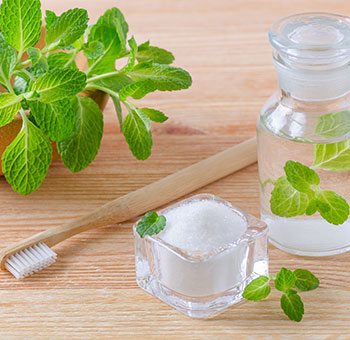
Dental Implant Maintenance
How To, And Why You Should, Look After Your Implants
Dental implant maintenance is very important. In fact, ongoing and continual post dental implant care is absolutely vital if you want to preserve your new teeth. Here at Digital Dental Surgery Sydney, we ensure that you get the very best aftercare using up-to-date implant maintenance protocol but at the same time and from day one, it’s important that you consider the maintenance of dental implants at home.
While there are certain things you shouldn’t do in the first few days after surgery like drinking cold beverages and exercising strenuously; cleaning dental implants at home is perhaps the single best thing you can do, to ensure that your implants remain healthy for many years to come. In fact…
Did you know that cleaning your implants is done in exactly the same way as cleaning your natural teeth?
Dental Implant Maintenance
How To, And Why You Should, Look After Your Implants
Dental implant maintenance is very important. In fact, ongoing and continual post dental implant care is absolutely vital if you want to preserve your new teeth. Here at Digital Dental Surgery Sydney, we ensure that you get the very best aftercare using up-to-date implant maintenance protocol but at the same time and from day one, it’s important that you consider the maintenance of dental implants at home.
While there are certain things you shouldn’t do in the first few days after surgery like drinking cold beverages and exercising strenuously; cleaning dental implants at home is perhaps the single best thing you can do, to ensure that your implants remain healthy for many years to come. In fact…
Did you know that cleaning your implants is done in exactly the same way as cleaning your natural teeth?
Dental Implant Maintenance instructions – How to clean dental implants properly?
Food particles and bacteria can become lodged in between the dental implant and gum tissue. If this isn’t removed, it can lead to plaque which in turn can cause an infection. While you don’t need special toothpaste for dental implants per se (a good quality low abrasive type will suffice) you may want to consider tools like…
● Dental implant cleaning brushes (known as Inter-proximal brushes)
● Good quality dental floss or a…
● Waterpik for dental implants (also referred to as an oral irrigator)
These are all great tools for removing those troublesome food particles. By combining good dental implant care and maintenance with regular professional dental cleaning, there’s no reason why your implants shouldn’t last for many years to come.
So what about those first few days – What to expect after implant surgery?
● Bruising
● Swelling
● Tenderness and
● Discomfort
The good news is that these are all signs that the body is healing itself and also because we use digital computer-guided flapless surgery techniques, there are no sutures needed, little or no bleeding, and generally less discomfort overall. However, it’s still important that you…
● Brush your teeth using a soft toothbrush, avoiding the surgical areas
● Wait for 24 hours before carrying out salt water rinses 2-3 times a day, or using any mouthwash
● Apply ice/cool packs to ease any swelling if needed
● Rest!
In the coming days and weeks after your dental implant treatment, you need to adopt a good oral routine as per the dental implant aftercare instructions that we’ll give you. During this time, brushing, flossing, and rinsing should become second nature; but if you’re still experiencing symptoms such as pain, swelling, and bleeding several weeks later, then it’s important that you contact us.

Dental implant care instructions – A word on pain
Finally, what about your dental implant recovery diet?
You might have heard horror stories about having to eat liquidised foods for months on end, but this simply isn’t true. In fact – and although every patient is different – some degree of normal eating within reason can usually be resumed within a couple of weeks. To give you an indication, here’s a rough timeline…
Dental Implant Maintenance instructions – How to clean dental implants properly?
Thorough brushing, flossing, and rinsing with a good quality ‘no alcohol’ dental implant mouthwash is key. However, because your implants are placed into the jawbone just like your natural teeth, there are certain points you need to bear in mind.
Food particles and bacteria can become lodged in between the dental implant and gum tissue. If this isn’t removed, it can lead to plaque which in turn can cause an infection. While you don’t need special toothpaste for dental implants per se (a good quality low abrasive type will suffice) you may want to consider tools like…
● Dental implant cleaning brushes (known as Inter-proximal brushes)
● Good quality dental floss or a…
● Waterpik for dental implants (also referred to as an oral irrigator)
These are all great tools for removing those troublesome food particles. By combining good dental implant care and maintenance with regular professional dental cleaning, there’s no reason why your implants shouldn’t last for many years to come.
So what about those first few days – What to expect after implant surgery?
When it comes to dental implant care after surgery, the first 48 hours are usually the most pivotal. Some symptoms you may experience within a day or two are:
● Bruising
● Swelling
● Tenderness and
● Discomfort
The good news is that these are all signs that the body is healing itself and also because we use digital computer-guided flapless surgery techniques, there are no sutures needed, little or no bleeding, and generally less discomfort overall. However, it’s still important that you…
● Don’t disturb the implant site
● Brush your teeth using a soft toothbrush, avoiding the surgical areas
● Wait for 24 hours before carrying out salt water rinses 2-3 times a day, or using any mouthwash
● Apply ice/cool packs to ease any swelling if needed
● Rest!
In the coming days and weeks after your dental implant treatment, you need to adopt a good oral routine as per the dental implant aftercare instructions that we’ll give you. During this time, brushing, flossing, and rinsing should become second nature; but if you’re still experiencing symptoms such as pain, swelling, and bleeding several weeks later, then it’s important that you contact us.

Dental implant care instructions – A word on pain
Let’s not forget that undergoing an implant-based restoration is a surgical procedure and therefore patients can expect a little post-surgery tenderness – although using digital implant techniques can often mean a reduction in any pain felt. Generally, after dental implant surgery care can be helped when patients use over-the-counter medications such as Paracetamol or Ibuprofen to ease any pain, which usually subsides within a few days. However, if pain continues or can’t easily be controlled, then contact us for further advice.
Finally, what about your dental implant recovery diet?
You might have heard horror stories about having to eat liquidised foods for months on end, but this simply isn’t true. In fact – and although every patient is different – some degree of normal eating within reason can usually be resumed within a couple of weeks. To give you an indication, here’s a rough timeline…
Dental Implant care and Maintenance – The first 24 hours
Avoid hot or extremely cold foods because they can agitate the implant site. Instead, lukewarm soups, yogurts, soft scrambled egg and shakes are good but avoid taking drinks through a straw. In addition, re-hydration immediately after surgery is very important.
Did you know that one of the most common causes of postoperative nausea is dehydration?
The first 7 days
Most dental implant care instructions will suggest that patients remain on a (relatively) soft food diet. However, nutrition is the key. Foods like soft fruits, pasta, fish and spinach have a good balance of nutrients needed to aid recovery. In addition, milk contains calcium which promotes bone growth, so a glass or two a day isn’t a bad idea.
After dental implant surgery - 3-6 months
This is a key time because this is the period when bone and implant fusion (osseointegration) takes place. Therefore, it’s important not to disturb the implant too much. So when it comes to foods, try to avoid anything hard or crunchy. If you’re not sure what you can safely eat, then as a general rule of thumb, if it’s likely to make a noise when you bite, then you may want to give it a miss.
After bone fusion
While adopting a dental implant aftercare diet may be seen as a bit of a hassle initially, it’s well worth it, to be able to eat whatever you like in months to come.
Top tips….
● Try not to skip meals because your body needs food to aid recovery
● Drink plenty of water – Remember hydration is key
● Reintroduce foods gradually, avoiding hard crunchy foods until after bone fusion.
As your digital dentist we’re a cutting-edge, fully digitalised dental surgery, creating beautiful smiles every day. For more information, contact us today on (02) 9158 6328 .
So there you have it, everything you need to know about dental implant maintenance after undergoing dental implant treatment. The golden rule is to follow any dental implant aftercare instructions very closely. If you combine this with regular visits to the dentist, you’ll continue to have a great looking smile for many years to come.
As your digital dentist we’re a cutting-edge, fully digitalised dental surgery, creating beautiful smiles every day. For more information, contact us today on (02) 9158 6328 .
Fill in the form below or you can call us on (02) 9158 6328
Fill in the form or you can call us at (02) 9158 6328
